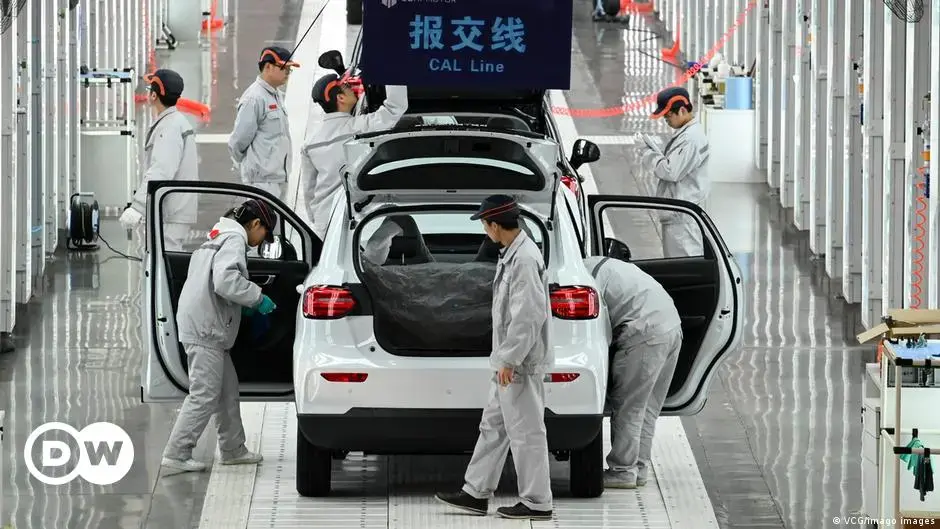Chinese firms can often undercut their Western counterparts for many reasons, including cheaper labor and economies of scale. But they also benefit from very generous state incentives, which help to make foreign rivals uncompetitive.
European Competition Commissioner Margrethe Vestager described China’s playbook for dominating green-energy sectors during a speech at Princeton University this week. Noting how China first attracts foreign investment through joint ventures, she said the country was “not always above board” in the way it acquired green technological know-how. China then closed its own market to foreign firms before exporting excess capacity to the rest of the world at low, subsidized prices, she says.
“We should prepared to play hardball with China,” says Rolf Langhammer, former vice president of the Kiel Institute for the World Economy (IfW-Kiel)… “For electric cars and green technology, the US and EU are the most important foreign markets, and the Chinese need access.”



🤖 I’m a bot that provides automatic summaries for articles:
Click here to see the summary
United States Treasury Secretary Janet Yellen warned China last weekend against overproducing clean-energy products such as solar panels, wind turbines and electric vehicles (EVs) in the race to slow climate change.
In addition to the huge subsidies, the report’s authors noted, Chinese producers also benefit from preferential access to critical raw materials, forced technological transfers and less domestic red tape than their foreign competitors.
“US and European nervousness is coming at a time when electric vehicle demand [in the West] has faltered a bit,” Brad W. Setser, a senior fellow at the Council on Foreign Relations, told DW.
German automakers have a quarter of their foreign direct investment in China and also benefit from Chinese subsidies and they fear retaliation," Langhammer said, referring to possible tit-for-tat measures Beijing may levy in the event of higher EU tariffs.
Washington is concerned that Chinese firms will use loopholes in US trade deals with Mexico and Canada to circumvent higher import tariffs by producing Chinese-branded EVs in the two neighboring countries.
Though EU countries installed record levels of solar capacity last year — 40% more than in 2022 — the vast majority of panels and parts came from China, according to data from the International Energy Agency.
Saved 81% of original text.